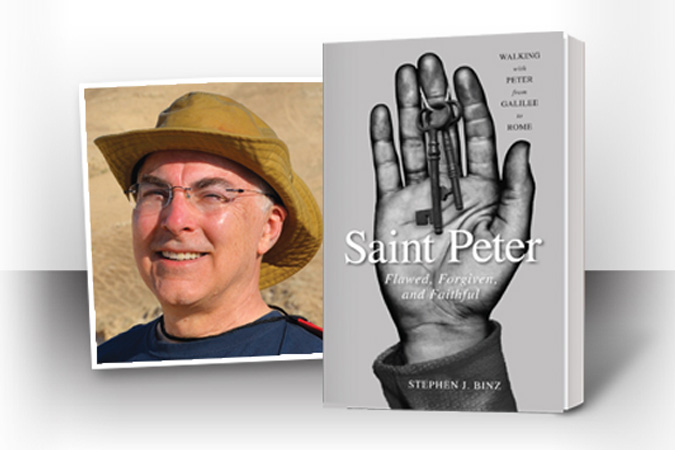If Jesus wanted to choose the ideal person to lead his church into the future, where would he look for such a person? We might suppose he could find such a person in Jerusalem, among the priests of the temple or perhaps among the educated and talented nobles of the city. Yet the person Jesus called for the task was not found among the religious leaders or the noble families of the capitol city. Simon Peter was a rugged fisherman, a simple man from the working class of small-town Galilee.
Jesus called ordinary people, not people known for their status, wealth, influence, or social standing. Jesus needed people who would give him themselves. It was not the accomplishments of a person that mattered to Jesus but what he could do with the person.
It seems that the characteristics of good fishermen are also some of the important qualities of good disciples. The patience and perseverance required for fishing must mark the life of disciples because of the frequent discouragement and hardship they encounter. The sense that a good fisherman has for knowing the right moment to drop the net is the kind of sensitivity needed by a seeker of souls, to know the longings and deep needs of people’s lives. Those who fish know how to choose the right bait to catch the fish; so too, disciples must be immersed in the real lives of people in order to share the message of hope and love that Jesus offers them.
The invitation of Jesus to “Follow me” and the immediate response of Simon Peter form a model for the kind of choice and reorientation of life that discipleship demands. Jesus’ call to Peter implies a personal relationship with Jesus. Jesus wants Peter’s life joined to his own, wants Peter to eat and dwell with him, to meet the same people and share their lives.
Of course the circumstances in which that choice is made vary greatly from one individual to another. Many throughout history have been nurtured in faith through the privilege of being raised in a Christian home. Many others have had to struggle with faith through great opposition and ridicule. Some have come to faith through a transforming experience that brought them face-to-face with the urgent need for belief. We can never impose upon anyone the decision to follow Jesus. True conversion is ultimately a thoughtful and conscious decision to make Jesus the foundation of life and to make God’s reign first priority.
But the call of Peter emphasizes an even deeper reality about Jesus’ call to discipleship. It is ultimately Jesus who chooses and summons those he wants to be his disciples. Although it was usual in Jewish circles for students to seek out and choose a rabbi to follow, Jesus operated differently. The initiative in discipleship always belongs with Jesus. So as much as we may decide to follow Jesus and choose to reorient our lives around him, we must acknowledge, if only in retrospect, that the reverse has been true. In all our searching and choosing, we were being sought and chosen. The one we choose is the one who first chose us.
—Excerpted from Saint Peter: Flawed, Forgiven, and Faithful by Stephen Binz






Be the first to comment